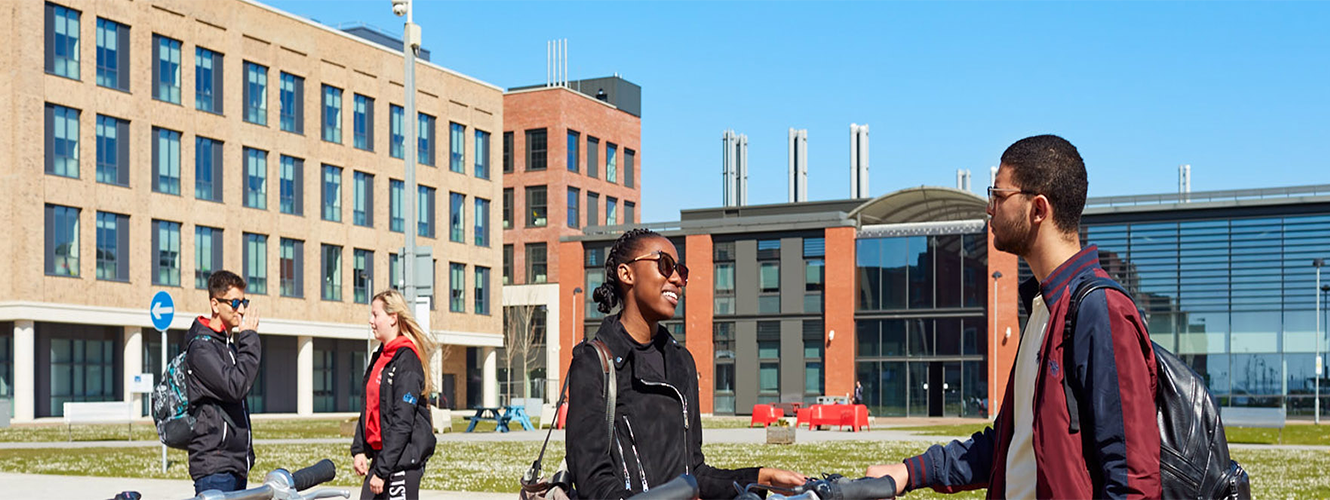UK117 MA Global Challenges: Law, Policy and Practice Swansea University
-
THÔNG TIN CHUNG
The Hillary Rodham Clinton Global Challenges Programme, supported by Sky, aims to facilitate international cooperation to address urgent national and transnational challenges. In partnership with Sky, this graduate scholarship initiative will develop the next generation of outstanding, forward-looking, real-world focused leaders in legal scholarship, activism and practice.
For our second cohort, who commenced their studies in January 2021, we selected five scholars who are studying the following topics:
- education, equality and climate change;
- human rights investigations;
- countering disinformation online;
- starvation in armed conflict, and
- special educational needs provision.
If you are accepted onto this master’s programme, you will receive a scholarship which covers the full tuition fee as well as a stipend of c.£15,000 to contribute towards your living costs.
Scholars will demonstrate academic excellence alongside a creative, action-oriented approach to collaboration and partnership working. They will follow a one-year (12 months) Master of Arts degree in Global Challenges: Law, Policy and Practice. The degree programme is based on experiential learning, and includes a research project placement. Scholars will also benefit from a range of additional activities, including mentorship, guest speakers, visits and media training.
Given the bespoke nature of the programme, and the opportunities available, please note that we welcome applications from candidates who already hold Master’s level qualifications, as well as those who hold a good undergraduate degree.
-
CƠ HỘI NGHỀ NGHIỆP
The programme is designed to significantly enhance the employability of students, enabling them to develop skills that will equip them for work across a range of sectors. The programme will support the development and ambitions of students intending to continue or undertake a career in:
- The public sector, including government at all levels: global challenges are a key responsibility of government. Graduates will gain the knowledge and skills applicable to law and policy development, programmatic action, the conduct of government through regulation and budgeting, and the arrangement and provision of public services. Potential careers include: civil service, regional, national and sub-national government, local authorities and other public bodies, and political and policy advice work.
- International and regional institutions: international and regional institutions are seeking to support, monitor and influence state policy and social arrangements in relation to areas of global challenge. Graduates will gain knowledge and skills applicable to advocacy in these areas, as well as technical arrangement of, for example, state programmes. Potential careers include: the United Nations, Council of Europe, and other regional institutions.
- The private sector: global challenges are increasingly the concern of the private sector in the realm of socially responsible capitalism. Major international organisations such as the World Bank are placing human rights and climate change at the centre of their business. Graduates will gain knowledge and skills applicable to the human rights concerns of business globally and at a state or sub-state level. Potential careers include: global business; the business sector (from large scale business such as the banking sector, to smaller concerns seeking to appeal to ethical consumers).
- The NGO sector: non-governmental agencies are well-established stakeholders in addressing global challenges. Policy advocacy and lobbying, campaigns, and on the ground intervention are all facets of the NGO sector globally, nationally and locally. Graduates will be equipped with knowledge and skills applicable to the breadth of work undertaken by the NGO sector in addressing global challenges. Potential careers include: international NGOs (e.g. UNICEF and Greenpeace); national or local NGOs.
- Research and academia: research on global challenges is a major concern, and is likely to increase in significance for funding priorities. Graduates will have well-developed research skills. In addition to the potential to continue to study at PhD level, graduates will gain knowledge and skills applicable to teaching and research in the field. Potential careers include: policy ‘think- tanks’; and, HEIs.
- ĐIỀU KIỆN ĐẦU VÀO
- ĐIỀU KIỆN NGÔN NGỮ
- HỌC BỔNG
- ĐỊA ĐIỂM
Tóm tắt
-
Phí ghi danh
0
-
Độ dài khoá học
1 năm
-
Kỳ nhập học
Tháng 1
Tháng 9
Phí Cơ Bản
-
Loại Tiền
-
Học Phí
Trên năm -
Phí Sinh Hoạt
Trên năm -
Tổng







